In the brutal heat and dry of July I rush home from work to water the garden. No sprinkler system or even a hose for me. I dredge the rain-fed stock tank with my watering cans which I carry to garden beds. Careful to keep water off leaves whenever possible, I direct the water to the roots.
I can feel the delight of the plants as each gets a good, long drink. I rotate around the garden, doing a few beds each day. It's better this way than a daily shallow watering. The roots are encouraged to spread widely and deeply, to follow the moisture as it retreats. I get to know my garden in a way I wouldn't with drip or overhead irrigation on a timer. I notice the shy jumping spider peeking from behind a bean leaf, and the candy-striped leafhoppers that frequent the cup plant.
I’m not totally against automated irrigation (just mostly), but my garden is more than a production zone and I treat it accordingly. It deserves more than a visit now and then to check on things and harvest produce. It's a calming retreat from the madding crowd. It's a sacred space full of living beings just waiting to help you connect with nature, with endless sights and smells, visitors never before met, worlds within worlds. Perhaps most importantly, it's a place where I can use my brain and my hands to create something incredible as well as edible.
We've largely separated low status manual labor from more lucrative white collar work, jobs in which one ostensibly uses one's mind exclusively. As a highschooler approaching the point at which I needed to make decisions about my educational and employment future, I was at a loss: Nothing on the menu appealed to me. I was nerdy, but not so brainy that the thought of working inside with ideas, words, and abstractions sounded like a good life plan. I ended up working an enormous variety of jobs, few lucrative, many physical but with some aspect that required thinking and organizing.
In the years since, I've heard more than once that the combination of physical labor and brain work required by farming made it attractive choice. Though I'm not (yet) a farmer, I understand this sentiment. To garden successfully, you must pay close attention, and keep notes or remember details from year to year. An encyclopedic knowledge of plants is very helpful, as is a basic understanding of ecology and soil science. The digging, hauling, pruning, mulching, and weeding complement the mental exercise. The colors, the smells, the tastes add the sensual component and balance out the entire endeavor.
Why is gardening so satisfying? Humans spent much of our existence doing just this, if on a grander scale. Walking around, tending to plants, removing the unwanted and encouraging the desirable. The great expanses of forest and prairie that met colonists as they spread across the North American continent are now understood to have been more of a garden than a wilderness, where fire was often used to modify ecosystems. I stick to pulling and pruning, but nonetheless feel a connection to others who came before, enhancing the land.
Gardening as a gentle encouragement and gradual development of a small piece of land is very different from resetting the plot each year with a tiller and simply repeating last year’s actions. Both require some planning and thought, and also physical labor, but the specifics differ. As I schlep animal waste and bedding down the hill to the compost area, then bring finished compost back up to enrich the beds, I am an active participant in creating an ecosystem that grows in complexity each year. When I prune and remove, keeping aggressive plants in check and coaxing growth from the shy plants, I can witness firsthand not just making something, but making something better.
Like all animals, humans need to move. The bending, stretching, and lifting in the garden is more than good exercise. It's the work of life. Gyms, the assembly lines of the fitness world, separate the movement and work of muscles from everything else, isolating it from any creative act. Gyms are like factories in which we lift and push, but these acts exist unconnected to an end result beyond strength and flexibility. All that effort could be put to use in the production of needful things. What if all the gym rats in the neighborhood spent an hour a day at the community garden, channeling energy into food production?
There are many warnings these days: Kids stay inside, do less running and biking around the neighborhood, less tree climbing, less fort building, less tadpole catching, less activity beyond passive screen viewing. The message is usually about childhood obesity or young people having little incentive to protect the natural environment when they have no connection to it.
Should we be worried? Absolutely, but it's not just that kids are more sedentary and that the child/nature link is not being forged. In the absence of physical work, there is a loss of the connection between labor and creative acts. It has been established that crawling as an infant stimulates brain development, shouldn't we assume the importance of continuing to move our bodies for reasons beyond merely exercise? What are the consequences of doing little more than manipulating a mouse to influence pixels on a screen?
My worries of neurally underdeveloped teenagers aside, we just really need young people who know how to do things. Food is the perfect example of satisfying handiwork, especially when one is involved in all phases from the planting to the relishing. I'm thrilled my sons like to read and play chess, but I'm also very happy they like to cook. I feel I've done an acceptable parenting job when I witness them picking vegetables in the garden for dinner, rolling out dough, and enjoying their culinary creations.
While I often write about how to minimize work in the garden, the messages of doing things by hand is not contradictory. It's not really less work I'm advocating, but how to get the biggest results with the least effort. In my case this doesn't mean switching to mechanized tools when hand tools will do the job. It means utilizing perennial plants, avoiding work done merely for aesthetics, and using mulch and shade to cut down on weeds. It's the direct touch without a machine interposed between me and the garden that has allowed me to learn to do better. The tiller, the irrigation system, the various mechanized tools — the labor-saving devices — mean work gets done faster, but understanding is slower, or won't come at all. I prefer the slow, with all its benefits.


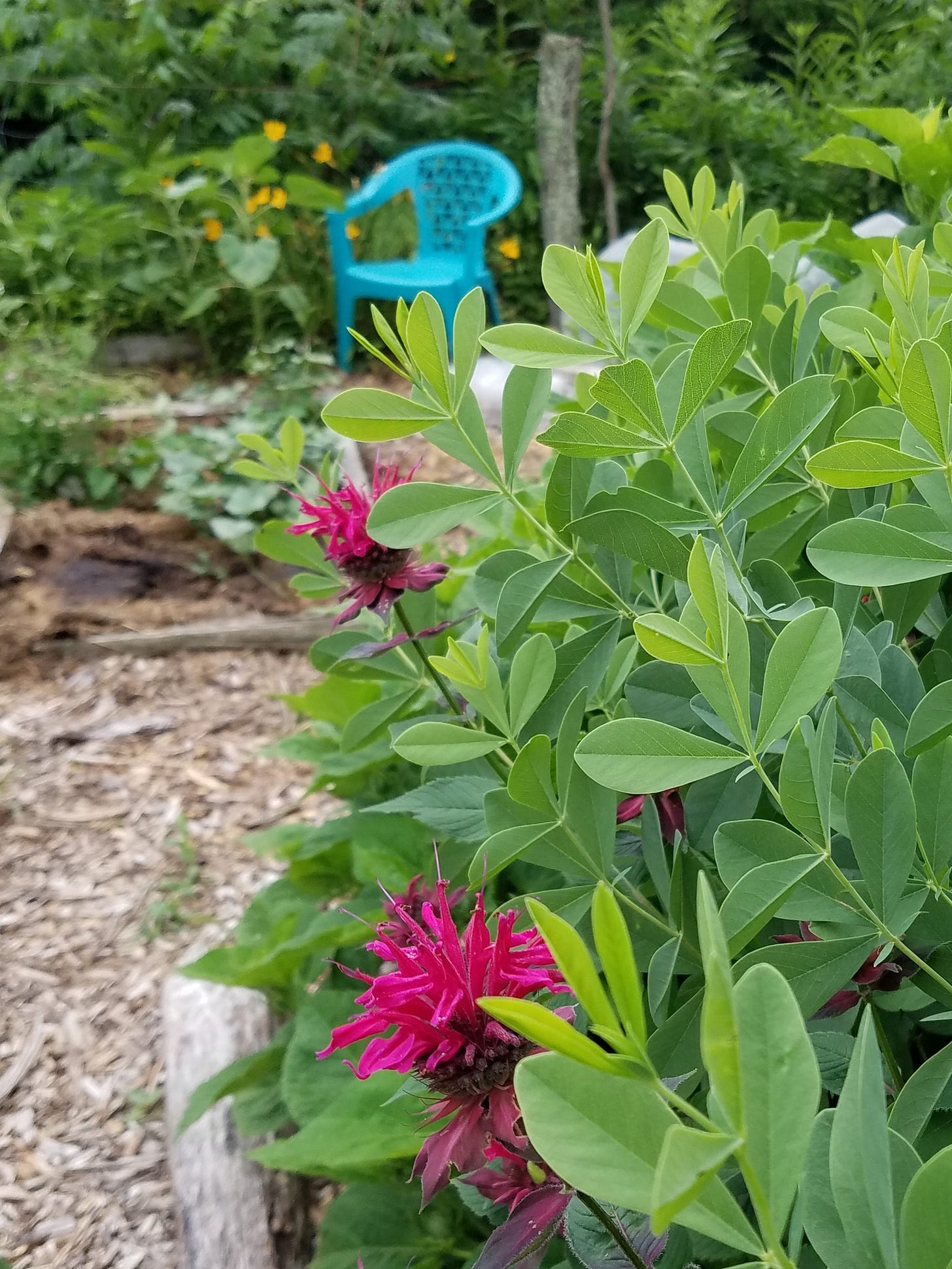
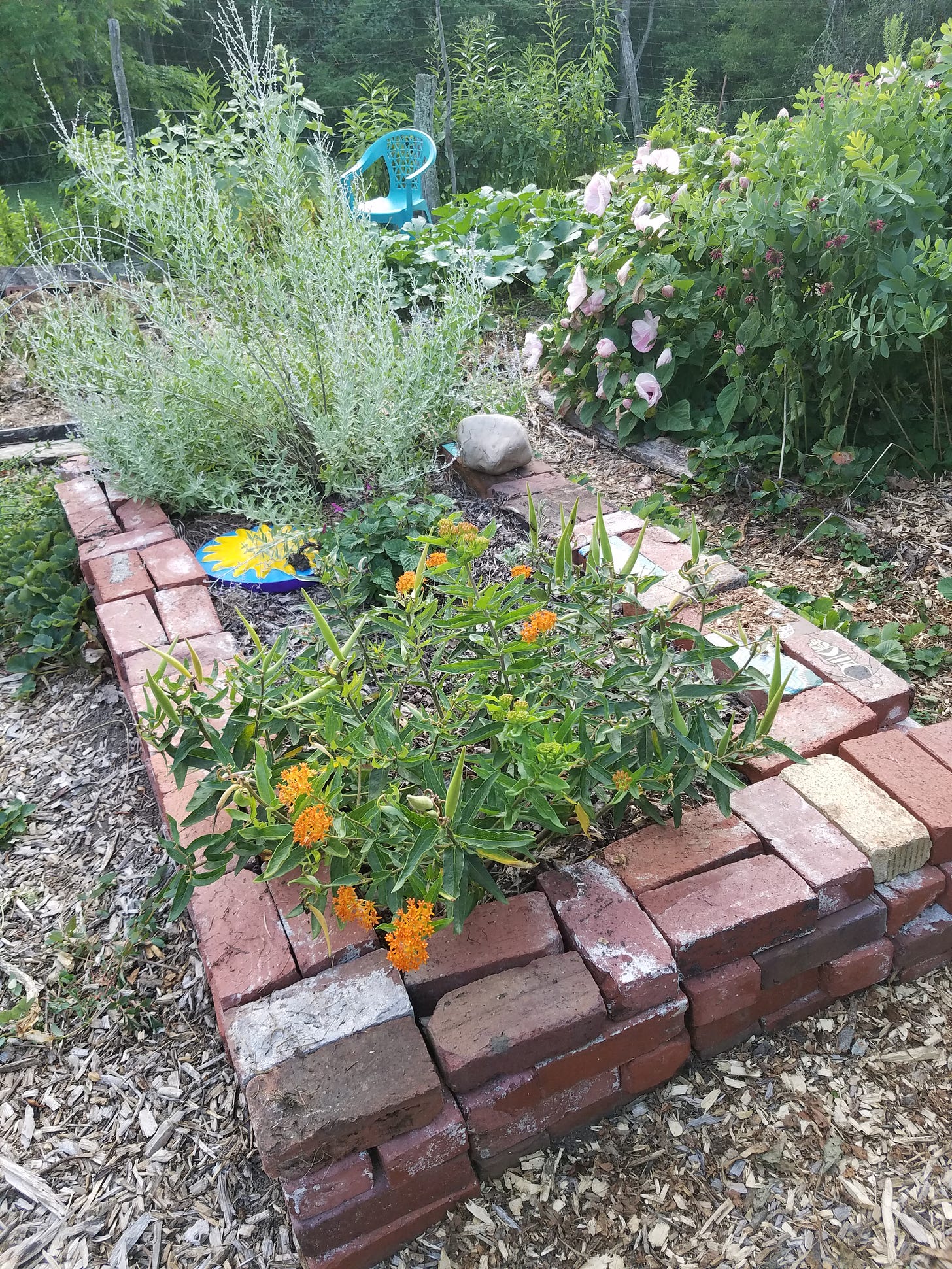

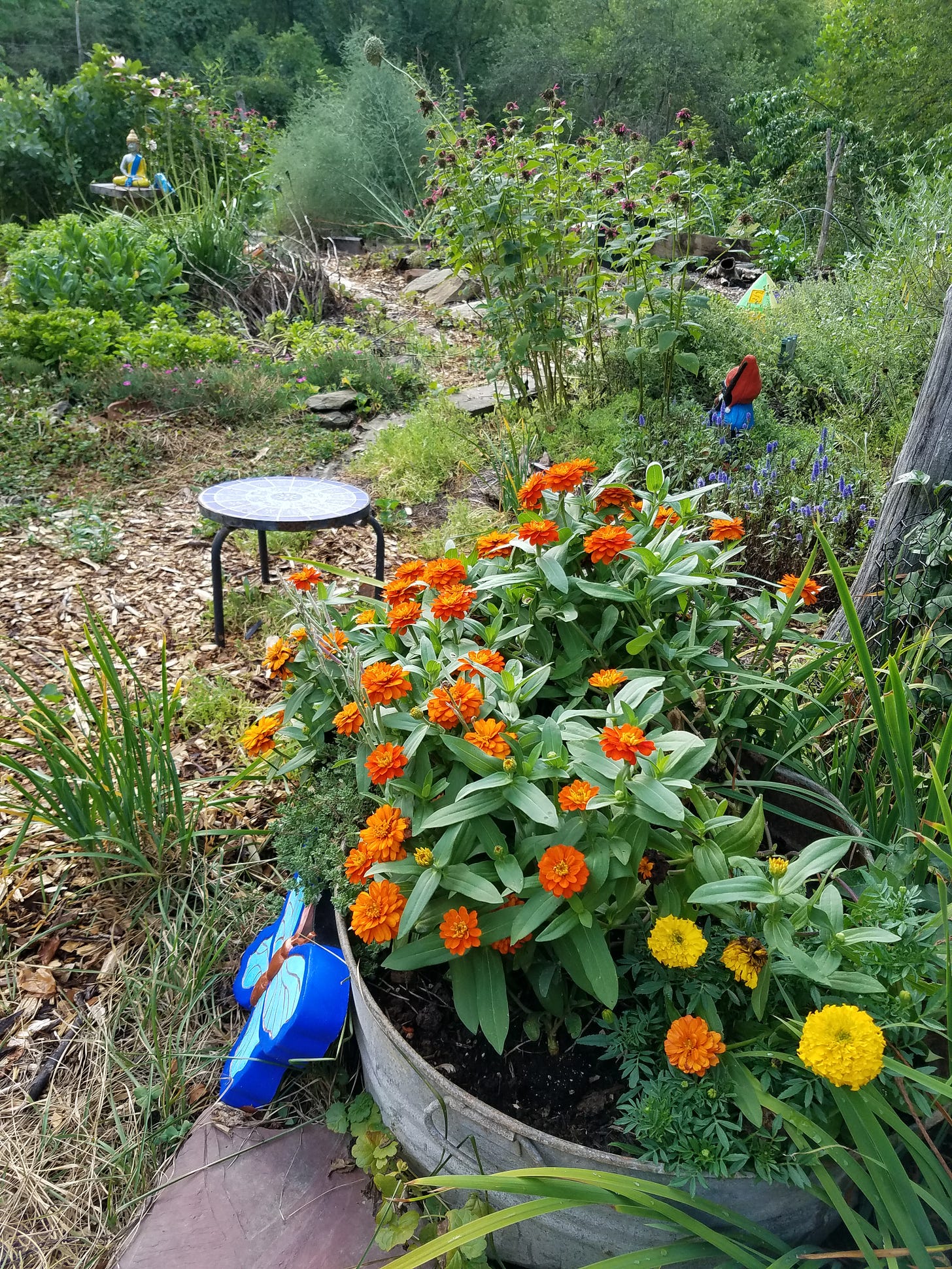

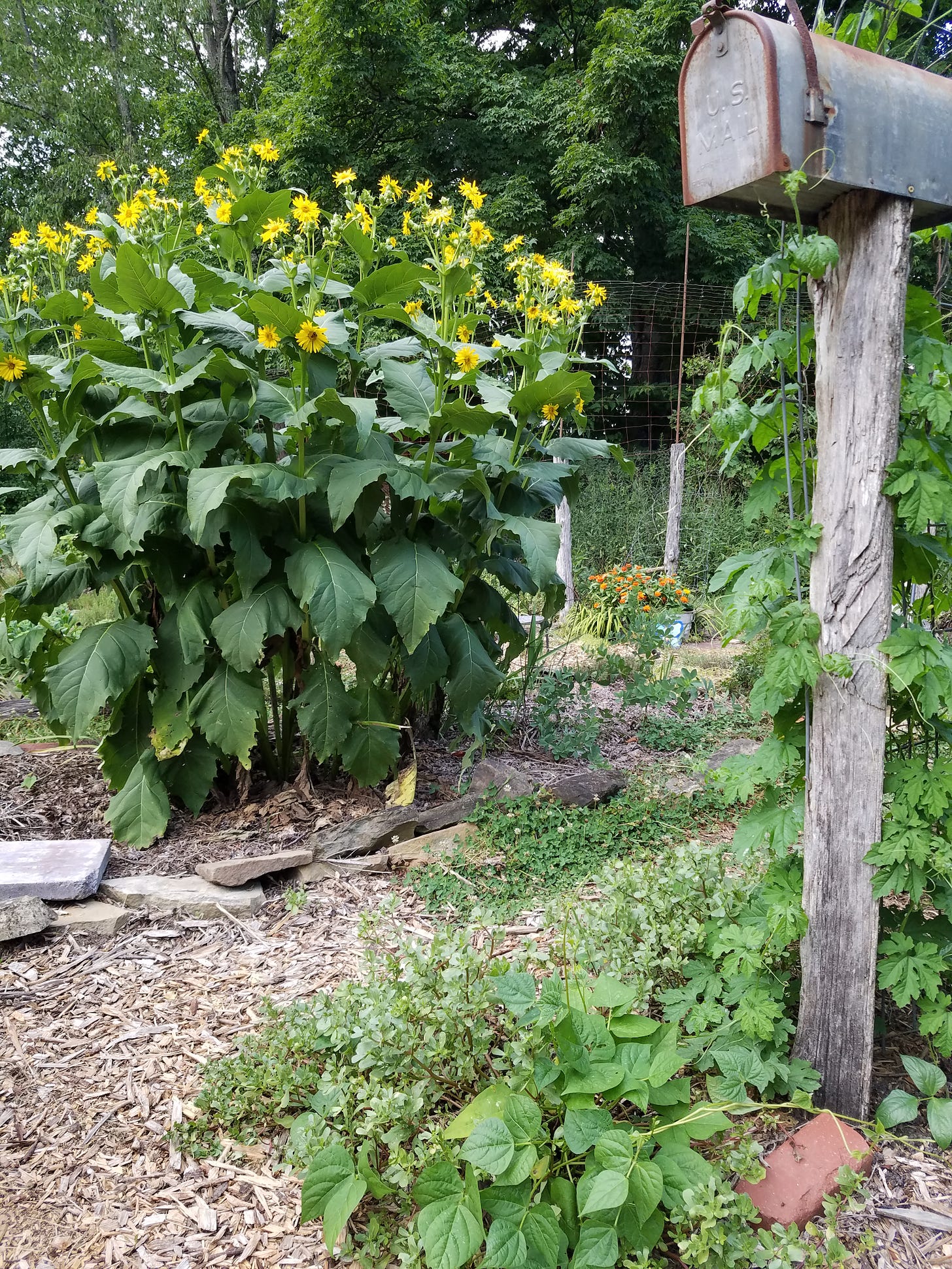
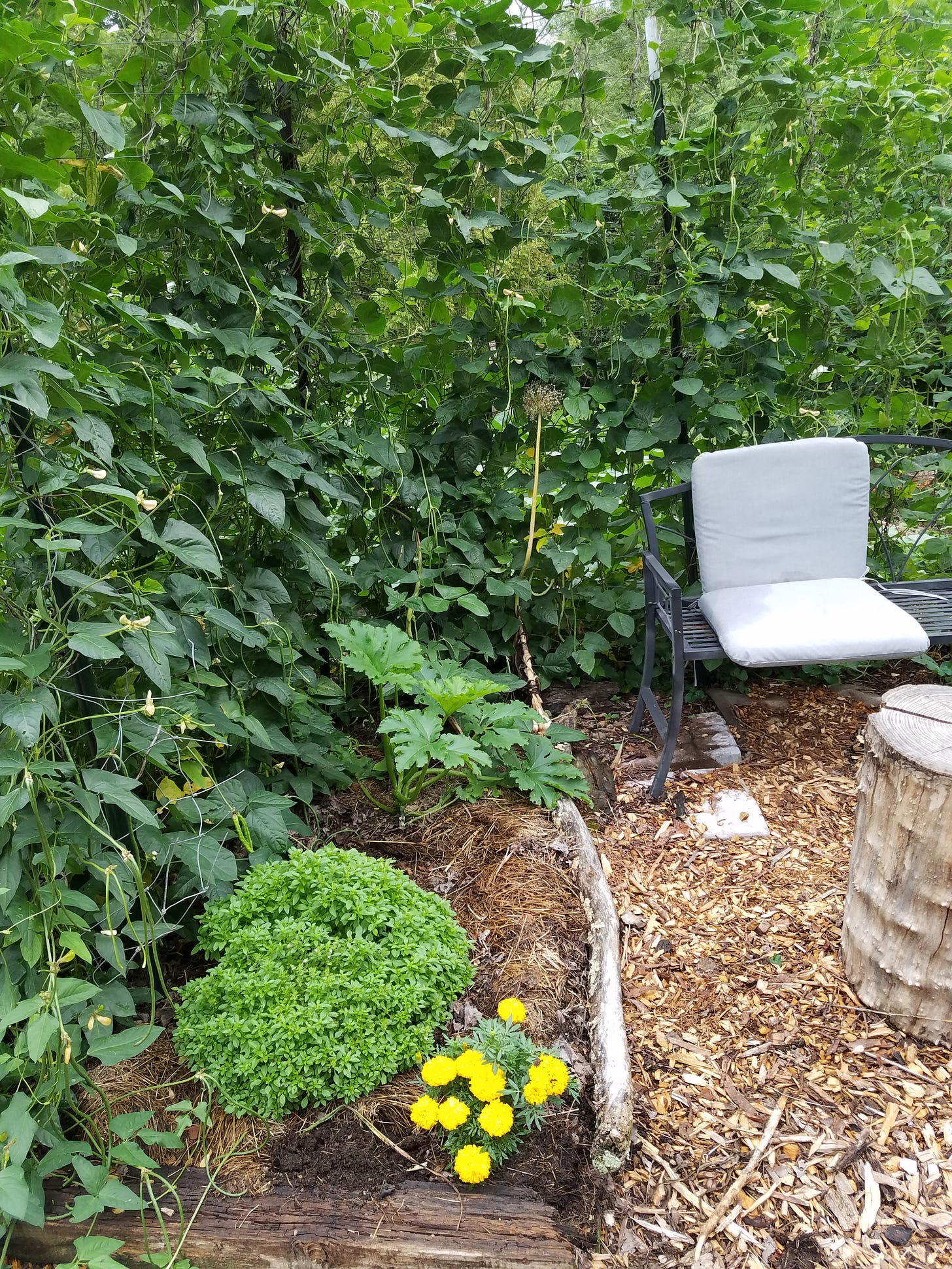
Yeah. Bought a plot of land. Been digging weeds and swinging a scythe whacking at roots. Today planting sun flowers Jamaica pumpkins watermelons etc. My wife commented at how good it feels to be in a body and how happy it makes her.
Bravo 👏!